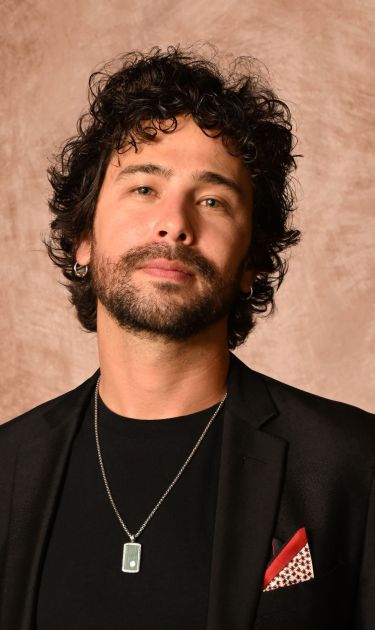Actor Héctor Medina (Sangre de mi tierra) remembers the challenges he faced as a kid living in Cuba in the 1990s. Whenever he would tell his mother he was hungry, she would cry because she couldn’t feed her children.
“There was nothing to eat,” Medina, 35, told Remezcla during a recent interview. “Sometimes we would get lucky and she would tell us, ‘Open your hand,’ and she would put sugar in it.”
Medina’s experience living in Cuba during Fidel Castro’s reign made his latest film, Los Frikis, a personal one. In the Spanish-language drama, Medina plays Paco, a punk rocker living in Cuba during the Período especial (Special Period). During this nearly decade-long economic crisis, there were shortages of food, energy, medicine, health care, gas and other goods and services.
To avoid going hungry (and also to find musical freedom since the Cuban government banned rock ’n’ roll), Paco and a group of musician friends decided to intentionally inject themselves with HIV, so they could live in a government-run facility that provided them with food and a sanctuary to live their lives on their own terms.

Los Frikis also stars newcomer Eros de la Puente as Gustavo, Paco’s younger brother, who fakes an HIV+ result, so he can live with Paco at the sanctuary; and Adria Arjona (Hit Man) as Maria, the facility’s sympathetic supervisor.
To build on the character of Paco, Medina, who left his home country for Miami about eight years ago, decided to reassess the “hanger” (hunger and anger) he felt when he lived in Cuba. He did this by going on a special diet during the film’s production.
“I would have a little bit of chicken and spinach and nothing else,” Medina said. “I’d have some sparkling water as a gift for myself for the day. It made me feel like Paco living in Cuba in the 90s.”

The film’s writers and directors, Tyler Nilson and Michael Schwartz, were on board with Medina’s dieting plans. They wanted Los Frikis to feel as authentic as possible. And Medina said he was never worried that two American directors were telling a Cuban story. “There are no fronteras (borders) in cinema,” Medina said. “That’s part of the magic. You can tell so many stories about different countries.”
Medina added that without Nilson and Schwartz, a film like Los Frikis would have been difficult to make. While some films are made in Cuba today, no Cuban filmmaker would dare make a movie critical of the Cuban government.
“A Cuban director wouldn’t have the free speech to tell the truth because of censorship,” Medina said. “If the government doesn’t support a movie, no one can watch it. They won’t [screen] it at the Havana Film Festival and won’t send it to other international film festivals because they don’t want people to know the story.”

With Los Frikis now at select American theaters, Medina wants viewers to connect to the characters and understand that the story is something that really happened.
“I’m proud of this film,” he said. “I want people to feel inspired. This movie is universal. It’s not about Cuba in the 90s. It’s about the journey of emotions for young people everywhere.”
Los Frikis is now in select theaters.





